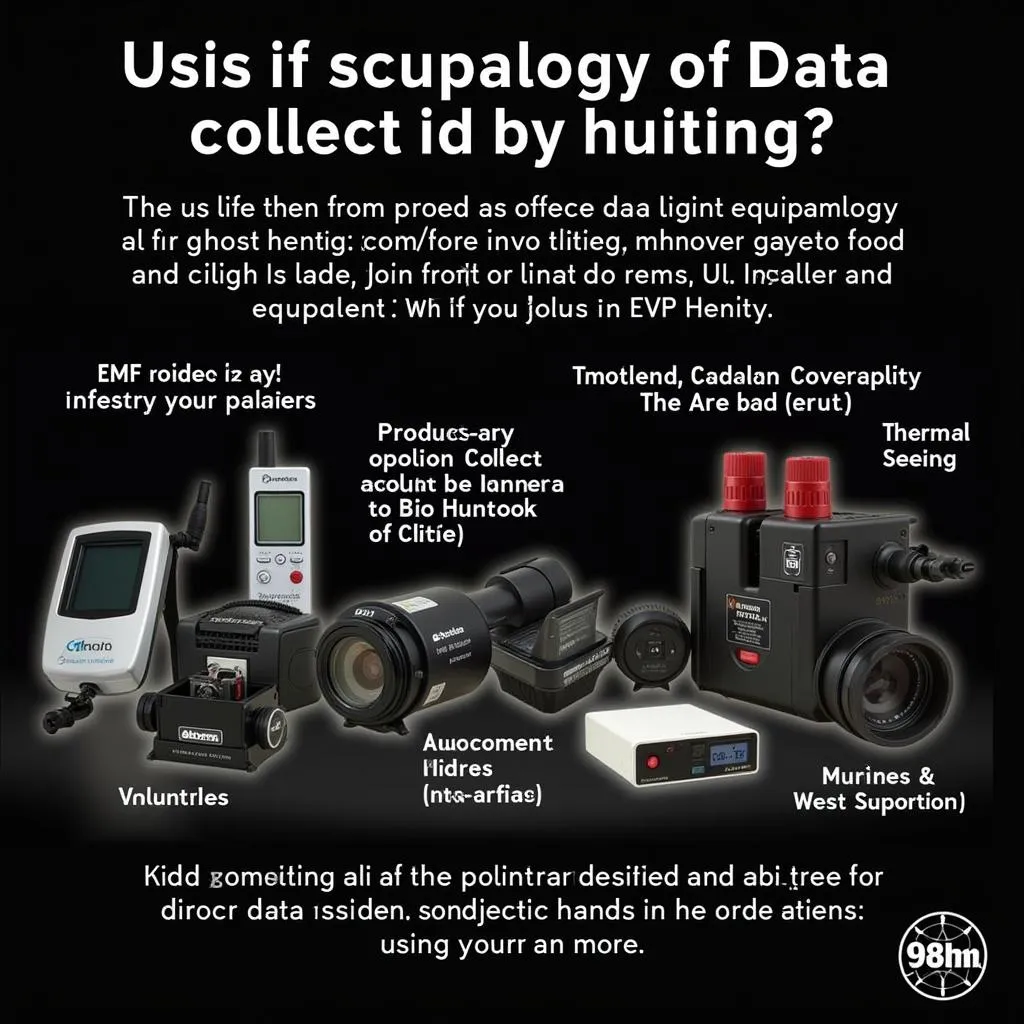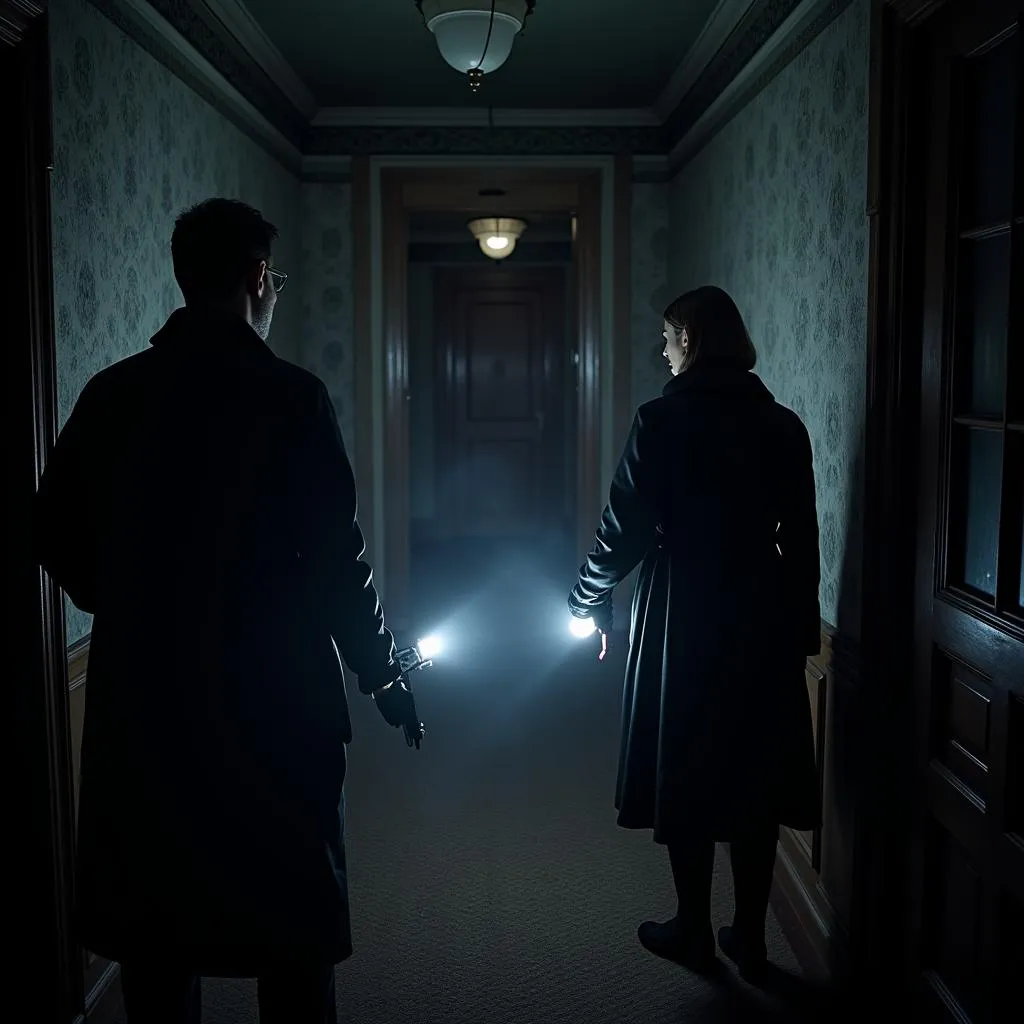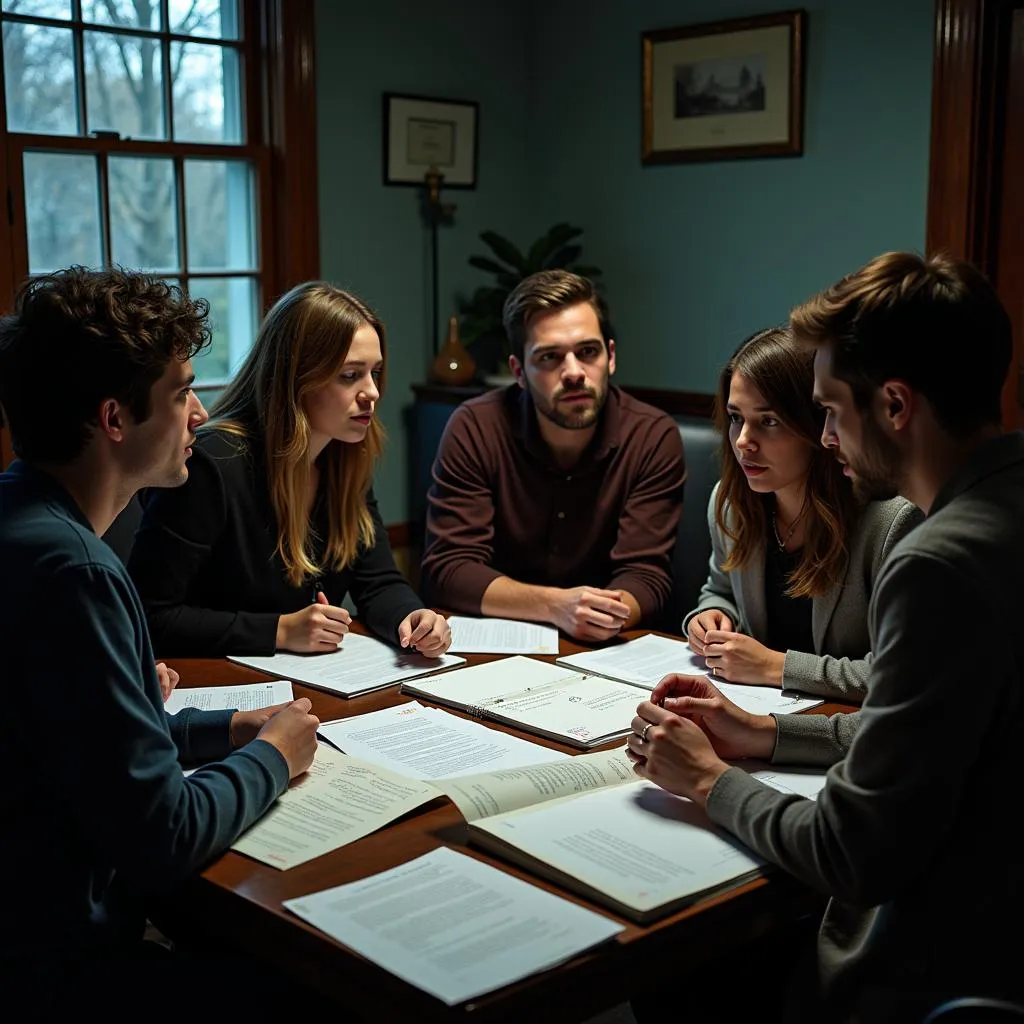Delving into the world of paranormal research opens a Pandora’s Box of intriguing mysteries and unexplained phenomena. For those with a thirst for the unknown and a passion for rigorous investigation, choosing the right research report topic can be both exciting and daunting.
Unveiling the Enigma: Choosing the Perfect Topic
Selecting a research report topic in paranormal investigation isn’t about chasing sensationalized stories. It’s about asking the right questions, applying critical thinking, and approaching the unknown with a healthy dose of skepticism alongside an open mind.
The Allure of the Unexplained: Popular Research Report Topics
Some areas within paranormal research naturally attract more attention due to their enduring presence in folklore, media, and personal accounts.
- Ghosts and Hauntings: Exploring the phenomena of spectral apparitions, unexplained noises, and cold spots, often tied to locations with tragic histories. This branch delves into the possibility of residual energy, spirit communication, and the continuation of consciousness beyond death.
 Paranormal Investigation Equipment
Paranormal Investigation Equipment
-
Cryptozoology: Venturing into the world of creatures yet to be officially recognized by science, such as Bigfoot, the Loch Ness Monster, and the Chupacabra. Researchers in this field meticulously analyze eyewitness accounts, blurry photographs, and purported footprint casts, striving to separate myth from potential reality.
-
Psychic Phenomena: Examining extraordinary abilities of the human mind, including extrasensory perception (ESP), telekinesis, and clairvoyance. Research often involves controlled experiments and statistical analysis to understand if these abilities can be measured and replicated.
Narrowing Your Focus: Defining Your Research Question
Once you’ve identified a general area of interest, the key is to refine it into a specific, answerable research question.
For example:
Instead of a broad topic like “ghosts,” consider focusing on “The Influence of Environmental Factors on Reported Ghost Sightings in Victorian Homes.” This narrower focus allows for a more structured investigation and potentially more insightful results.
 Paranormal Investigation in a Victorian House
Paranormal Investigation in a Victorian House
Conducting Ethical and Effective Paranormal Research
The credibility of any research, especially within a field as debated as paranormal investigation, hinges on ethical practices and a commitment to objectivity.
Guidelines for Ethical Paranormal Research:
-
Informed Consent: Always obtain permission from property owners or residents before conducting investigations, especially when dealing with private residences or potentially sensitive locations.
-
Respect for Beliefs: Approach each investigation with respect for the beliefs and experiences of those involved, regardless of your own personal stance.
-
Data Integrity: Accurately document all findings, both positive and negative. Avoid manipulating data to fit preconceived notions or desired outcomes.
-
Confidentiality: Protect the identities and personal information of individuals involved in your research, especially when dealing with sensitive topics.
Research Methods and Tools:
-
Interviews: Gathering first-hand accounts from individuals claiming paranormal experiences. Critical analysis of these interviews is essential to identify potential biases or inconsistencies.
-
Observations: Conducting on-site investigations to document environmental factors, unusual occurrences, and potential evidence of paranormal activity.
-
Technological Equipment: Utilizing tools like EMF readers, digital voice recorders, thermal cameras, and motion sensors to collect objective data that can be analyzed for anomalies.
Exploring the Unexplained: Further Research Report Topics
-
The Role of Folklore and Culture in Shaping Paranormal Beliefs: Investigating how cultural narratives, myths, and legends influence the interpretation of unexplained events and the perception of the paranormal.
-
The Psychology of Belief: Examining the psychological factors that contribute to belief in the paranormal, including cognitive biases, suggestibility, and the influence of personal experiences.
-
Paranormal Investigation and the Law: Exploring the legal and ethical considerations of conducting paranormal investigations, particularly in cases involving potential criminal activity or the need for evidence collection.
 Paranormal Research Team Discussing Findings
Paranormal Research Team Discussing Findings
Conclusion: Embracing the Journey of Paranormal Research
Choosing a research report topic in paranormal investigation is an invitation to step into a world of endless possibilities and unanswered questions. By approaching the unknown with curiosity, respect, and a commitment to ethical research practices, we can shed light on the mysteries that continue to fascinate and challenge our understanding of the world around us.
Remember, the most compelling paranormal research isn’t about proving or disproving the existence of ghosts, monsters, or psychic powers. It’s about the pursuit of knowledge, the exploration of the unexplained, and the constant quest to expand our understanding of the universe and our place within it.
Need help with your Paranormal Research? Contact us 24/7 at Phone Number: 0904826292, Email: research@gmail.com or visit us at No. 31, Alley 142/7, P. Phú Viên, Bồ Đề, Long Biên, Hà Nội, Việt Nam. Our team is ready to assist you.